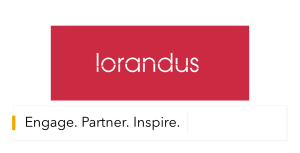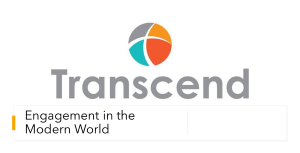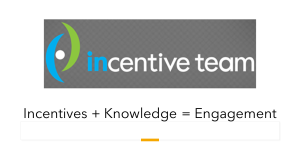Channel Partners: Overview
An effective reseller program should help you and the dealer build the overall sales category while building sales.
Many organizations sell through some form of “channel partner,” such as a distributor, dealer, or independent sales or service agent. Some dealer or distribution organizations may use independent agents or representatives as well. For our purposes, we’ll refer to all such organizations collectively as “channel partners” or “resellers.”
The key to targeting channel partners and the people they employ is to remember: These people work for their own organizations or for an organization other than yours – they are not employees of your company. Further, they likely represent other companies with which your organization competes and which have their own marketing and management strategies to get them engaged and maximize their performance.
Bottom line: A channel partner and its people will generally be driven to do what is best first for their own organization, and not necessarily what your organization wants them to do.
What generally is most important to a channel partners is to make money, so incentive programs that target channel partners should help that company do so in a way that is convenient for the channel partner and which recognizes its desire to satisfy its own customers and bottom line.
Resellers are on the front lines of selling your company’s products and services, but they are doing so only to the degree that it is profitable or otherwise beneficial for them to do so. Therefore, the first steps in developing an incentive program targeting resellers involve:
- Identifying channel-wide trends—what companies in your business do the best job engaging resellers, and what is it they are doing?
- Understanding individual partner requirements—what’s in it for the reseller to sell your product or service or participate in your incentive program?
- Assessing the current level of partner commitment and loyalty to your brand—how does your product or service measure up with your resellers and why?
- Identifying specifically who within partner organizations can influence the sale of your product or service.
The ultimate rewards to the sponsors of a reseller incentive program can include increased sales, increased mindshare, and greater loyalty, based on the latest research on incentive practices by The Incentive Federation. This section of Incentivecentral.org provides the information and resources your organization needs in order to reap the rewards of a successful channel partner or reseller incentive program.
Facts and Figures
Some 49 percent of all companies surveyed in the 2005 Incentive Federation Survey of buying practices make use of dealer incentive programs. Increasing or maintaining sales, creating new markets, and gaining a larger share of market are common goals for reseller incentive programs.
Types of Resellers
Resellers come in many shapes and forms, and the nature of your business relationship with your resellers will say a lot about how to design your program. Resellers include:
- Distributors who take the billing for the products or services they sell to other companies and often warehouse it prior to sale or delivery.
- Dealers, who often buy from distributors or directly from manufacturers, and who sell products or services directly to consumers or businesses.
- Agents and independent representatives, who usually sell to distributors, dealers, or end users and who receive a commission from the companies they represent. In some industries, exclusive agents are the norm; in others, exclusivity is rare.
Resellers or channel partners can include value added resellers (VARs), sales agents, systems integrators, software partners, retail outlets, specialty stores, and manufacturer’s representatives.
Reseller incentive programs are offered by the sponsoring company as a motivational tool directed at increasing performance or behaviors that will be favorable to the sponsor. Obviously, the best outcomes result when the program is equally favorable to the reseller or channel partner.
Motivational Factors
Resellers have their own agendas. Your incentive program for the reseller’s sales people may be abundantly beneficial to your organization (and the reseller’s as well), but unless management within the reseller organization buys in to your mission, it likely won’t translate to success in the field.
Who’s the boss? Keep this key factor in mind: The people employed by the reseller get their paychecks from the reseller. If management does not agree or embrace the belief that what you want his or her employees to do is in the best interests of the reseller organization at large, what you want done will not be reinforced by the reseller and your incentive program will likely fail, if it even gets off the ground. To succeed, your organization has to offer a triple-win scenario: the reseller principal or organization wins; the reseller salespeople or other sales influencers win, and you win.
Understand who influences the sale. You might assume that the salespeople make most of the sales, when in fact, customer service or installers get heavily involved. You’ll want to make sure your program addresses everyone who can make or influence the sale. You might even discover an opportunity to engage installers, repair, or customer service people.
Achieving buy-in. Getting buy-in from a reseller represents even a greater challenge than from an employee, because most resellers have choices. You’re asking an independent business entity to purchase something and then to sell it, or to sell your product or service to valued clients. The dealer principal and his/her salespeople have to believe they can move the product or service (at a profit) once it’s put on the shelves, in the lot, in the warehouse, or on the sell sheet, and that their clients generally will be satisfied. In the channel partner’s eyes, “partner” translates into expecting suppliers to deliver what’s promised. “Buy-in” occurs when reseller principals, management principals, or top decision-makers:
- Believe that representing your company or buying into the program your company offers will be profitable and beneficial to themselves and/or their business.
- Support your organization by authorizing and encouraging their people to actively participate in your program.
When your incentive program includes devices or tactics such as direct marketing materials, co-operative advertising, and employee training to help the reseller succeed, you demonstrate a commitment to the partnership. In the reseller’s eyes, you have invested in their success by offering them—above and beyond additional profits or sales incentive rewards—tools that will help ensure business success. Achieving management buy-in doesn’t stop at the design stage either—you need internal reseller management support throughout the program.
Who to target. Many companies want to target the reseller salespeople who actually present the product to the end user. Channel partner principals often resist these programs, fearing that externally sponsored incentive programs motivate their salespeople to act in someone else's best interests. If you want to target salespeople, you must do so in a way that will benefit the reseller principal as well. Some channel partners appreciate incentive programs as a way of providing employee perks they can't afford or as an opportunity to provide extra training.
Proprietary customer information. Resellers are at the customer-facing level in the supply chain; they know what is important to their customers. Your organization chose to partner with a reseller organization because it acts as a sales, service, and distribution arm. Your resellers are likely to be protective of customer information, because they don’t want you to go around them and sell directly to their customers. If your incentive program has a component that communicates directly to the reseller’s end users, then special assurance about how you will use any lists provided will be top of mind to them. Be prepared to demonstrate that you have no intentions of trying to cut them out.
Competition for mindshare and loyalty. How your incentive program is structured should reflect the type of resellers you need to motivate and your relationship to the companies involved. The resellers who can make things happen for your organization either own the business or are salespeople who work for dealers or distributors that resell your products or services, which makes achieving incentive program goals more complicated. How far removed they are from your company within the supply chain is of critical importance. You face competition for the dealer principal’s money, warehouse space, and access to his or her sales force. And you face competition for the salesperson’s trust, time, attention, persuasive abilities, recommendations, power of influence in customer situations, and more from competitors trying to engage the same audience as you.
In fact, thinking about sales incentives for channel partners is best begun by thinking about mindshare and loyalty first – because the “partnership” is, in reality, a matter of choice on the part of both parties. Incentive programs and the support tools that work with them (e.g., training, merchandising, lead generation support, etc.) demonstrate your commitment to a win-win relationship; you can never make the same assumptions you would when running an incentive program for your own employees.
The strength of true partnerships. The term “partner” has become devalued because of overuse, but research on motivating resellers suggests that acting as a partner to help a reseller build its business provides more motivation than a point or two extra commission. Independent businesses, reseller organizations have their own business model, management structure, balance sheet, lines of communications, etc. One of the first steps in targeting channel partners is to understand the role of the channel partnership on an individual basis and how specifically your organization can help them do better in their markets. The strength of the relationship is determined by:
- Assessing performance by partner and market segment or region.
- Comparing performance across partners by market segment or region.
- Identifying areas in which each partner excels and benchmarking the reasons why.
- Training and coaching partners and their employees for superior performance in a win-win fashion.
- Identifying key drivers of loyalty for each partner. What specifically makes resellers more loyal than others?
In addition to measuring your resellers’ commitment to the partnership with your company, you will value feedback about your own organization’s performance, telling you how resellers and end-users perceive your products, services, web site, and overall brand. It’s for this key reason that the most successful incentive programs targeting resellers employ input from a “Channel Partner Council” of some sort—a group of trusted channel partners willing to share a day or two of time with you to discuss mutual issues and ways to address them. Input on partner needs, areas of pain, program rules, most appropriate rewards, communication tactics, etc., will put you closer to the mark with your target audience, and the resellers selected to participate will appreciate the value you place on their input.
Planning a reseller incentive program is a good time to better understand the current level of commitment demonstrated by your channel partners. Are there some of your company’s products or services that do not move as quickly as others or which the channel does not represent to the extent your company desires? Are some partners substituting competitive products for some of yours because they have a better understanding of them, get more support, earn higher commissions, or more motivational incentive rewards? What are the stocking requirements – for example, do competitors have looser requirements to maintain minimum stocking, or (perhaps) offer more favorable discounts on bulk purchases or better credit terms? If you don’t address these factors in your incentive program design, your program likely will fall short by failing to address the true reasons for your under-performance.
Similarly, where are the gaps in the partnership equation on the part of your company? Has your company done what it said it would do? Is it trusted? Sales incentive programs for channel partners that offer the resellers tools by which they can sell more effectively are valued to a high degree. They say to the partner, “We’re committed to this partnership, and we want to ensure your success.”

















